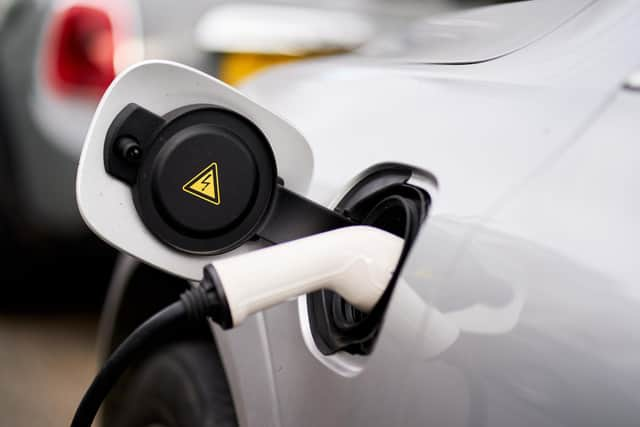Number of electric cars in Worksop and Retford rose by three quarters last year
This article contains affiliate links. We may earn a small commission on items purchased through this article, but that does not affect our editorial judgement.
and live on Freeview channel 276
The Government is aiming to entirely phase out petrol and diesel-powered cars by 2030, with battery-electric vehicles planned to account for all car sales by 2035.
The AA said the numbers show “the appetite for electric vehicles is steadily growing”, adding improved charging infrastructure and more affordable price points could see the total number break the one million mark this year.
Advertisement
Hide AdAdvertisement
Hide AdHowever, a senior figure at Auto Trader said the uptake is not sufficient to meet the Government’s “admirable but ambitious 2030 targets” and called on support for the market to further increase electric car adoption.


Department for Transport figures show 552 battery-electric cars were registered in Bassetlaw district at the end of last year – up from 314 the year before.
Across Nottinghamshire, 4,482 were registered, up from 2,649 at the end of 2021.
Across the UK, 629,000 battery-electric cars were licensed at the end of 2022, up 66 per cent from 379,000 at the end of 2021.
Advertisement
Hide AdAdvertisement
Hide AdHowever, Ian Plummer, Auto Trader commercial director, said: “The uptake is positive and moving in the right direction, but it’s not where we need to be if we’re to meet the Government’s admirable, but ambitious 2030 targets.”
He said “substantial measures to support the market”, such as cutting VAT on public chargers, should be introduced to further encourage buyers.
The number of plug-in hybrids also rose during 2022, with 30 per cent more cars registered on the UK’s roads at the end of 2022 than the year before.
In Bassetlaw, 360 hybrid petrol and diesel cars were licensed – up from 245 in 2021. Across Nottinghamshire, the figure rose from 2,137 to 2,956.
Advertisement
Hide AdAdvertisement
Hide AdJack Cousens, AA head of roads policy, said; "The growing number of vehicles that come with a plug shows the appetite for electric vehicles is steadily growing.
“Continued growth in the public charging network, improved single-charge distances and more models available at more affordable price points could mean the number of battery-electric cars breaks the one million mark this year.”
A DfT spokesman said: “More people than ever are buying electric vehicles and we’ve put more than £2 billion into helping them do so.”